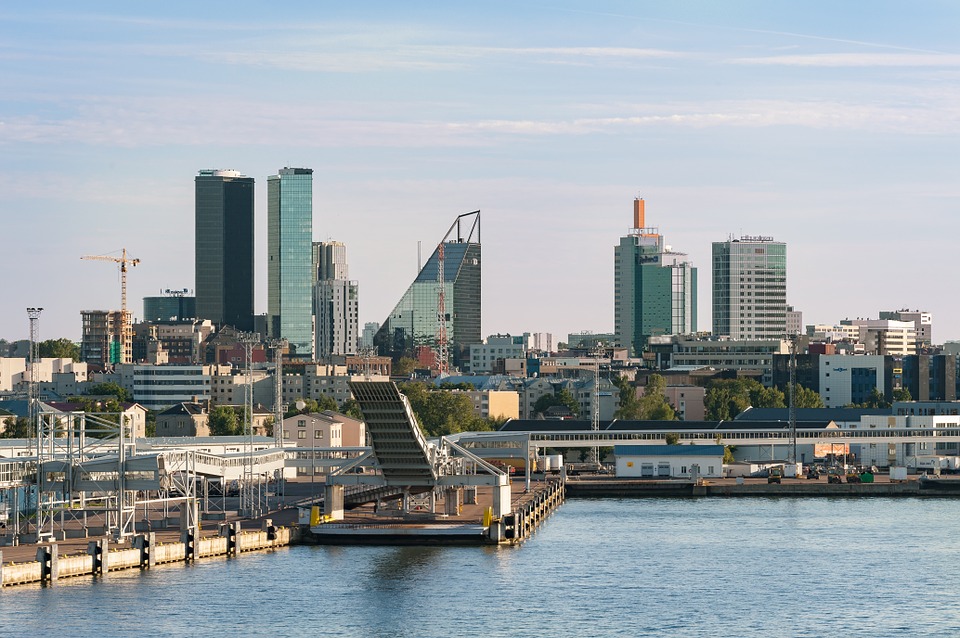Next week I will be heading to Tallinn, Estonia. Working in international development, I have gotten used to finding myself in some unexpected places, but this is one that I definitely wouldn’t have predicted. It also happens to be my first trip for IRI, and the more that I browse and click and tweet around, the more that I see just how tremendous this is going to be as an experience for both myself and for IRI to be present in.
I’m IRI’s ICT Program Specialist. Now, at its core, IRI is not a tech shop, but rather one for Democracy and Governance. “So, what is the role of a technologist at IRI?” you might ask. We see technology as opening up a whole range of doors for our mission through opportunities to engage more people in more ways, and gathering and distributing more information. The increased adoption of technology around the world has made it an exciting time to be involved in governance.
That gets me back to this trip. Estonia has long been a leader in innovation in e-governance. It goes back quite a while, and my 600 words won’t do it justice, but Estonia has played a leading role in fostering and implementing global technologies (have you heard of that “Skype” platform?). Some of their other accomplishments, such as how they have encouraged and facilitated a culture of entrepreneurship are nothing short of inspiring, but they have also found a way to apply these technological capacities for modernized governance in a way that few others have. The enabler however, according to President Toomas Hendrik Ilves, was the ditching of “legacy thinking.” Many see the burden on adopting new technologies as being the heap of old (legacy) technologies already in place. Ignoring that, the Estonians focused instead on the burden of old mentalities preventing them from asking “why not?”
I am flying over to Tallinn (and am excited, if you can’t tell) for involvement in the House Democracy Partnership (HDP) regional conference. HDP, a bipartisan commission of the U.S. House of Representatives, is devoted to peer-to-peer engagement with developing democracies, facilitating exchanges and other assistance activities to support foreign legislative institutions. For this particular event, IRI is bringing delegations from Georgia, Kyrgyzstan, Mongolia, Ukraine, and us Americans to speak about the role of e-governance in a democracy. E-governance is all about utilizing ICT to better deliver government services; to a democratic government, it’s about offering new and better opportunities for citizens to engage with their leaders and fostering accountability and transparency—all recipes for a healthy democracy. The countries of my fellow delegates may not have the same level of technology adoption as Estonia, but the opportunity and meaning of e-governance, once again, is in the thinking, not the technology. This is what has me champing at the bit to get there. These delegations hold an incredible wealth of knowledge and experiences from navigating complex environments, oftentimes without being able to just default to a “there’s an app for that” solution.
This is what leads to responsiveness, and where I am excited to learn. ICT4D (technology for international development) has unfortunately also included a lot of irresponsible development. Some aspects of that are in the code, with systems being built that don’t provide adequate data privacy or that take shortcuts which end up inhibiting use by anyone other than urban elite, but I think another fatal omission is that of buy-in. What is the point of a communication channel if there is radio silence on the other end? What good is that service delivery app if services aren’t being delivered? We aren’t here to build systems for anyone, we are here to help people interact with each other. We need to be committed to doing everything that it takes to make that happen, beyond just building, and that doesn’t require 100% internet penetration. That takes partnerships, planning, communication with ALL users, and a genuine desire for the types of interactions that e-governance pursues. Over the course of the week you will undoubtedly find me glued to the conversations about how to approach those points.
The above words, the many victories of Estonia, and the intrigue sparked whenever telling someone about them are among why the trip was so unexpected for me; it’s stable, there is no conflict, and no rebuilding is necessary. They have had their share of obstacles however. The country was battered by World War II, fought over by the Germans and Soviets, and then ultimately annexed by the Soviet Union until declaring sovereignty in 1988. That sounds more like the profile of an IRI destination, but it is from this shared experience and their understanding of post-communism regrowth that we look to them. This trip, I hope, will establish Estonia as a role model for our other participants, an example of the endless options they have for their own futures, and I am honored to be able to help facilitate that.
No one of us is going to hold the magic key for effective e-governance, but it is through these fora (and the support of a wonderful host, the Estonian e-Governance Academy) that the picture can start filling in. And, maybe someday, there will just be the right app for that.
Top